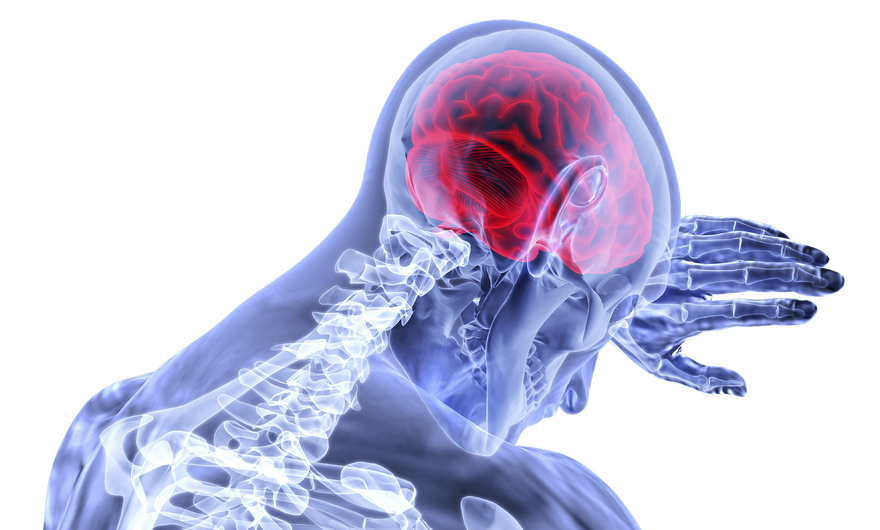What's driving the increasing rates of chronic disease and inflammatory conditions?

Over the last few decades we've seen an exponential rise in people suffering with many neurodegenerative and inflammatory related conditions like Alzheimer's, Parkinson's, MS, autism, depression, anxiety, diabetes, cancer, arthritis and all other autoimmune conditions like Crohn's, ulcerative colitis and lupus etc. And this exponential increase does not seem to be slowing.
While some explain this as the inevitable result of the ageing population due to increasing life expectancy, it doesn't explain the corresponding rise of chronic illness we see in children today.
Are there some mechanisms and contributory factors we could explore to help us explain this increase incidence of deterioration?
Modern living conditions and technological innovations have reduced some of the many acute stressors we may have been exposed to in the past and improved sanitation has indeed reduced the transmission of toxicity and infectious diseases, contributing to overall better health outcomes for those privileged enough to live in such places.
However, there are many other changes in our world today and we would be wise to examine at what cost are the many other aspects of our modern technological era having on us.
Of course, I am truly grateful for and use many of the luxuries of western civilisation, however, along with the many benefits, there are also some drawbacks. I feel it vitally important to be aware of these drawbacks and to learn potential ways to help mitigate and adapt to the dynamics of our modern living environment.
"The general population is not living longer, they're dying longer"
I can't remember who I heard that phrase from, but it is unfortunately part of the scenario we are seeing unfold today. Personally, I don't feel it has to be that way. Life is for living, not suffering.
As the title of this article suggests, there is one process that underpins all of the mentioned above conditions - chronic inflammation.
So what is inflammation?
Inflammation is a very big subject area with many intricate details; however, I'll share a brief description for you.
Inflammation is a natural immune response to a stimulus like a pathogen, injury or toxin, to initiate a breakdown and repair process within the body. Without acute inflammation, our body would not heal or be able to defend itself against pathogens.
Basically, our immune system supports us to maintain health by identifying that which is self and that which is foreign to us. This includes pathogens, toxins and damaged cells. One of the mechanisms our immune system uses in inflammation.
Inflammation needs to be kept controlled as it tends to be self perpetuating. This is due to the release of inflammatory cytokines. Cytokines are messenger molecules our immune system uses to signal its activity. With increasing exposure to inflammatory stimuli, our body can get overwhelmed and acute inflammation in isolated areas can turn into chronic systemic or low grade inflammation.
With the immune system on hyper alert mode, it can become over reactive to perceived threats that would normally be tolerated and initiate inflammation anywhere in the body. This is known as loss of self tolerance and is the basis of autoimmunity. However, in many circumstances the body is reacting to intracellular toxicity or pathogens like a viral infection for instance. This is where some collateral damage can occur as inflammatory processes can spread out into the healthy tissue surrounding the area of concern.
Oxidative stress is another element associated with inflammation. Oxidative stress occurs when a molecule with an unpaired electron known as a free radical, steals an electron from another molecule, therefore destabilising it. This leads to a free radical cascade, damaging tissue as a result.
The thing is, our immune cells use oxidation as part of the inflammatory response. Oxidation is the mechanism for breaking down damaged cells or pathogens. For example, a macrophage may produce hydrogen peroxide to oxidise a bacteria. As you can see, there's a delicate dance the body has to balance with inflammation and it seems that many health conditions we are seeing increase today are being driven by a pro-inflammatory state.
For example, in the case of cancer, one hypothesis suggests that excess oxidative stress within our cells, in particular the nucleus of our cells, results in mutations of our DNA due to free radical damage. Mutated DNA leads to all manner of metabolic breakdown issues.
So, what are some of the influences that may be contributing to this situation?
-
Filling up of the EMF spectrum with radio and microwave frequencies like wi-fi and mobile phone transmissions that may disrupt cellular communication and integrity, induce DNA damage and other inflammatory processes. Research has shown that WiFi radiation resonates the voltage gated calcium channels (VGCC) on our cell membranes leading to an excessive influx of calcium into the cells increasing the production of a damaging free radical called peroxynitrite. Peroxynitrite reacts with many other cellular components causing cell dysfunction. This is particularly an issue with children as their skulls are thinner and therefore have less protection. Microwave radiation also resonates the water molecules in our body, and may disrupt their optimal liquid crystalline structure. Structured water surrounds all proteins and membranes in the body and even our DNA. This structured water plays an important part in cellular communication, energy transfer as well as other quantum properties related to information transfer. Reference by Professor Martin Pall below.
-
Circadian Rhythm Misalignment - Our modern lifestyles have divorced many of us from nature and its light natural cycles. This leads to circadian rhythm mismatch and disruption of our normal day night cellular cycle. White LED and fluorescent light bulbs emit unbalanced or excess blue light frequencies that can lead to increased oxidative stress, especially within our mitochondria (energy producing organelle within our cells). Mitochondrial health is critical to our well being, as they generate much of the energy we need to live, as well as extracting environmental information from the food we eat. Blue light exposure at night also tells of brain its day time. This reduces the melatonin production in our pineal gland, reducing sleep quality and brain regeneration. Melatonin is also important for brain detoxification via the glymphatic system. Neurosurgeon, Dr. Jack Kruse is doing excellent work informing people about the toxic effects of blue light and other man made EMF's have on our health.
-
Societal stressors - whether financial, health, education, political, environmental may increase adaptive stress response and cortisol dysregulation. All stress uses up nutrient reserves and may promote chronic inflammation. Chronic stress promotes sympathetic nervous system dominance and reduced the rate of regeneration of our bodies.
-
Emotional or Energetic disturbances- emotional trauma and psychic influences can have a profound effect on our health
-
Environmental pollution - millions of tonnes of toxic pollutants being dumped into the environment every year contaminating the air, water and food supply increasing toxic load on the body, increasing oxidative stress and depleting nutrient reserves.
-
Increase in sedentary lifestyles - leading to poor posture, autonomic nervous system dysregulation, lymph stagnation, metabolic autointoxication, excess inflammation is draining on the adrenals which regulate energy levels thus increasing the tendency for lack of activity
-
Poor Posture - Our posture is also compromised with commonly used office and home furniture like a sofa that encourages slumping. Spinal misalignment can increase sympathetic nervous system response and cortisol production. Even our modern toilets move us out of our natural squatting position and results in the colon being pinched. Incomplete elimination leads to autointoxication as toxins in the colon re-circulate to the liver, increasing toxic burden.
-
Mass agricultural farming practices - pesticides, herbicides, fungicides, larvacides, artificial fertilisers, mineral depleted soils, decreased microbiological diversity within the soils, food storage and artificial ripening techniques diminishing the nutrient density of many foods. Dr Stephanie Seneff of MIT State University has done extensive research on the effects of glyphosate, one ingredient in the commonly used herbicide, Round up. Studies indicate a disruption of our gut microbiome and in turn gut lining integrity. Intestinal hyper permeability (leaky gut) up regulates all inflammation in the body, especially the brain.
-
Chemical toxicity, heavy and toxic metals - Pollution, agrichemical agriculture, medications, contaminated herbs, heavy metals in fish, amalgam fillings and vaccines all have the potential to create inflammatory oxidative stress causing cellular damage. In the case of vaccines, many contain neurotoxic aluminium, formaldehyde, polysorbate 80 and sometimes mercury preservatives with are delivered directly into the body, bypassing the normal bodily boundaries and mucus membranes found in the sinus's, lungs, gut and other linings that infectious agents would normally enter. These toxins can even cross the blood brain barrier inducing inflammatory reactions. The adjuvants in vaccines have been associated with induced autoimmune and other inflammatory conditions as discussed in the medical text book 'Vac ines and Autoimmunity'. http://eu.wiley.com/WileyCDA/WileyTitle/productCd-1118663438.html
-
Diminished probiotic diversity within our microbiome and increased pathogenic organisms due to excessive antibiotic use, some medications, conventional soaps and cleaning products, contraceptive pill, toxicity, manmade EMF's, refined food diets and lack of fibre. Manmade EMF fields have been shown to be especially detrimental to our microbiome.
-
Mold toxins from damp buildings or humid conditions can also be a major contributor to inflammation in the body
-
Chronic infections and parasites: our immune response to infections stimulates inflammatory cytokine storms
-
Modern refined and processed foods - consumption of polyunsaturated fatty acid rich seed oils like corn, soy, rapeseed, sunflower or safflower leading to omega 6 dominance and oxidative stress from rancidity of oils and increased pro-inflammatory prostaglandins. For more info on this area please read my blog entitled ‘What's up with vegetable oils’. Refined sugar leads to mineral and vitamin deficiencies and, in turn, blood sugar instability. Artificial sweeteners and preservatives increase the chemical load and many are known excitotoxins like MSG (monosodium glutamate). Excitotoxins may cause brain inflammation in some individuals.
-
Compromised gut lining integrity from multiple causes like food allergens, antibiotics, va cines, other toxins, EMF's, stress, lack of colostrum at birth. Gut inflammation increases systemic inflammation which increases brain inflammation.
-
Nutritional deficiencies - leading to decreased production of endogenous (made within us) antioxidants like glutathione and SOD. Mineral imbalances like the transition metals zinc/copper/iron can lead to pro-oxidant conditions and neurotransmitter imbalances. Magnesium deficiency is very common in the western world today, with some estimates up to 80% of people in certain regions. Magnesium is used in over 300 enzymatic reactions in the body and is essential for modulating the stress response, energy production and detoxification.
-
Blood sugar dysregulation - insulin resistance from compromised cell membranes and poor dietary choices like excessive sugars. Elevated insulin and blood sugar promotes inflammation and AGE's (advanced glycation ends products). This can be exacerbated with chromium and B vitamin deficiencies.
-
Excess body weight also increases the tendency towards a pro-inflammatory state. Fats cells release inflammatory signalling molecules around the body. This is also partly due to disturbed hormonal balance like estrogen dominance, particularly unbalanced 4 and 16 hydroxy estradiol with progesterone and the 2 series protective estrogens.
-
Unique genetic SNPs from lifestyle and environmental factor influence the epigenetic expression of our DNA altering the ability of our body to manage different substances.
So what can we do about this to support ourselves so we can best adapt or avoid some of these stressors in our world?
It starts with being more aware and conscious of our environment. And if you're reading this, you're obviously motivated to learn about increasing this awareness to look after yourself and your loved ones. This is what we'll be sharing in much more detail as we develop the Health Wisdom Network to empower you to find and apply solutions in your own lives. Many tips and recommendations are provided in our Free Resources we've created for you.
Here are a few areas to explore:
-
Detoxification Support - Increase the body's ability to release and detoxify pollutants with good nutrition, exercise, saunas, enemas, binders like clay, zeolites, activated charcoal. Specific nutrients like NAC (N-acetyl cysteine) can increase our endogenous antioxidants like glutathione. Minerals like copper and zinc are key components of SOD (superoxide dismutase) and catalase. Some of these tools are quite powerful so must be used with guidance if you are unsure how to use them.
-
Increase dietary phytonutrients like curcumin, quercetin, sulforafane from colourful fruits and vegetables, egg yolks, liver, and other nutrient dense foods. Many act as antioxidants and modulate the expression of anti-inflammatory genes
-
Balance omega 6 and omega 3 ratio - DHA and EPA rich foods like fish, organic grass-fed animal products, oysters or even supplement with high quality algae or krill oils. Chia and hemp seeds provide a good source of ALA the plant form of omega 3 which the body can convert into some of the longer chain DHA and EPA
-
Balance blood sugar levels, minimize EMFs and blue light, reduce stress - see our Health Wisdom Essentials Guide for more details
-
Minimize exposure to toxins by being aware of what actions and choices may invite them into our environment and into our body. Eating organic food and using natural personal care products are easy ways to minimise exposure.
-
Optimise oxygen transport around the body by increasing cardiovascular health with exercise, breathing exercise, nutrition and many herbs like Ginko Biloba, Hawthorn or Brahmi
-
Intermittent fasting or dietary ketosis can help induce increased autophagy. Autophagy is our body’s way of breaking down old dysfunctional cells that create inflammation and cleaning them out. This may help protect the brain and keep it more functional. The prolon fast also known as the fasting mimicking diet has been demonstrated to be an effective strategy to balance the immune system.
-
Exercise your brain with fun activities, social interaction, novelty, puzzles and problem solving
These general recommendations can be expanding on and their use can be individualised depending on each person’s situation. Sign up for our newsletter for updates of our upcoming events.
Thanks for reading
Quinn (2017)


0 comments
Leave a comment
Please log in or register to post a comment